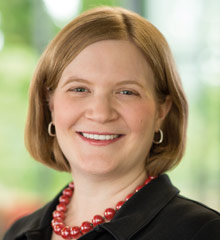Commentary on 1 Kings 8:[1, 6, 10-11] 22-30, 41-43
Like last week’s reading from Kings, this week’s selection also features a prayer uttered by King Solomon.
Whereas last week’s passage involved an appearance of God to Solomon in a dream, 1 Kings 8 contains a prayer offered before “all the assembly of Israel” at the dedication of the Jerusalem Temple, which Solomon has built for the LORD. Both of these consecutive lectionary passages offer insight into the nature of encounters with God.
In the prayer found in 1 Kings 3, God initiates the conversation with Solomon. God appears to Solomon in a dream, and God speaks first, commanding Solomon, “Ask what I should give you” (1 Kings 3:5). In this week’s passage, Solomon does all the talking, but the LORD is nonetheless present. Having completed construction of the Jerusalem Temple, Solomon now oversees the transfer of the ark of the covenant from the Tabernacle into the Holy of Holies in the Temple.
When the ark is rightly situated, a cloud fills the Temple, signifying the presence of the LORD. After brief prefatory remarks (8:12-13), Solomon turns first to address the assembly (8:14-21). His speech, which is not included in this week’s lectionary selection, reminds the people of the chosenness of his father David and situates Solomon’s Temple-building project as a promise of God fulfilled. Rhetorically this is a shrewd political presentation, as it depicts Solomon’s rule as both a continuation of David’s greatness and yet also an improvement upon it: the realization of David’s vision and God’s assurance.
Having emphasized the theological legitimacy of his political status to his assembled constituents, Solomon now turns toward the altar with his hands toward heaven to address God (8:22-53). He has physically oriented his whole self toward the deity. This bodily posture underscores the depth of focus of this prayer; speech to the congregation has ended, speech to God has begun.
Several of the same phrases from the preceding speech are repeated in the prayer; for example, both passages describe God’s fulfilling with his hand what he has promised with his mouth, first described in the third person and then in the second person (8:15, 24). Though this text undoubtedly has a complicated editorial history, the effect of those repetitions in the existing form of the text is to underscore the notion that the speech was not directed at God, nor was the prayer directed at the assembly.
Have you ever heard a public prayer in a worship service do “double duty,” announcing something to the congregation even while ostensibly addressing God in praise, confession, thanksgiving, or petition? “Thank you, God, for opportunities for fellowship, including the supper coming up this Wednesday at 6 p.m., for which everyone will bring a dish to share…” “Lord, please watch over our brother George, who was admitted to County Hospital Room 304 last night around 11 p.m. with chest pains…”
Communal prayer necessarily and desirably communicates something to the participants as well as to God, awakening our spirits to new needs and hopes. Even so, there is a danger that we can allow our prayers to disintegrate into community announcements that we merely allow God to overhear. The clear delineation between Solomon’s prayer (verses 22-53) and his two addresses to the assembly that surround it (verses 14-21 and 54-61) highlights Solomon’s singularity of focus even in this public, liturgical setting. If Solomon’s private dream-prayer (1 Kings 3:3-14, appointed for last week’s readings) reminds us to acknowledge our own brokenness, Solomon’s public prayer reminds us that God is always worthy of our full attention and address, not the remnants of our conversations.
Despite the fact that Solomon’s prayer is clearly separated from his speeches to the assembly, the text of the prayer itself is not without an agenda. Its language is thickly Deuteronomic, emphasizing covenant, steadfast love, and the fulfillment of promises made to David, which hinge on the faithfulness of the king and the people to the LORD. For the author to have this language on the lips of Solomon helps to advocate for a particular worldview that runs through the books of Joshua, Judges, 1 and 2 Samuel, and 1 and 2 Kings.
Solomon’s accomplishment of constructing the Temple receives its primary theological importance from the notion that the Temple is a place where a worshipper knows that God can be encountered. Verse 27 emphasizes, however, that the Temple is not God’s “dwelling place” in the sense of “permanent residence”: “But will God indeed dwell on the earth? Even heaven and the highest heaven cannot contain you, much less this house that I have built!” (8:27) This interjection highlights the fact that God is present and accessible in this place, yet not boxed in.1
Though this week’s appointed reading from the prayer ends at verse 30, Solomon’s prayer continues after verse 30 with seven petitions. From these petitions the lectionary includes only the petition of verses 41-43, which asks that even foreigners who pray toward God’s house have their prayers heard and answered.
Preachers may want to engage the seven petitions as a “complete set,” in which case the theme of forgiveness that runs through the set emerges more prominently. One the other hand, as one of two petitions that do not directly mention sin or forgiveness, this selection does stand out from the rest of the set. Focusing on the lectionary verses as offered may thus direct preachers’ reflections towards questions of chosenness and inclusivity.
1For a helpful discussion of the nuanced implications of God’s “enthronement” in this passage, see C.-L. Seow, “The First and Second Books of Kings,” NIB 3:68-79.

August 26, 2012